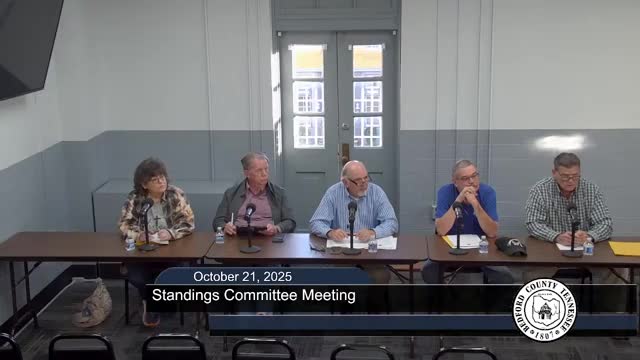Bedford County creates temporary oversight board for decentralized wastewater systems
Get AI-powered insights, summaries, and transcripts
Subscribe
Summary
The county approved a planning‑commission proposal to form a seven‑member board for one year to review and set guidelines for alternative (decentralized) wastewater systems in subdivisions and other new developments.
Bedford County commissioners voted to form a seven‑member decentralized wastewater system oversight board on a one‑year term, approving a planning‑commission recommendation intended to add local review and enforcement for alternative wastewater systems used in subdivisions and some single‑house installations.
The planning commission proposed the board after discussions about gaps in oversight for decentralized systems that developers currently may select without substantive county review. Planning commission representative Mr. Yockey told commissioners the planning commission is revising subdivision regulations and wants a separate board to review final plats and utility arrangements for decentralized systems: "I'm representing the planning commission." The board would review final plats, confirm homeowners associations and utility districts are in place, and require maintenance and repair reports to be filed and reviewed.
Commissioners and members of the public raised concerns about who would be responsible if a decentralized system failed. Several speakers referenced recent problems in Mount Juliet and Wilson County and said the county should set qualification standards and an RFQ process so only vetted utility districts would operate local systems. One commissioner summarized the intended change this way: "We're asking for here to give us the right to enforce that. And that's the whole purpose of this is to enforce ... If they meet their guideline. Because they said it'll work, then it should be working." Another added, "If it's not working, well, then you're responsible."
Debate also covered board composition and appointment. Commissioners discussed size (options ranged from five to seven members), desired qualifications, and the mayor's role in submitting nominees. Several commissioners said they wanted a mix of expertise and public‑facing balance on the board; suggestions included having a commissioner, a planning commissioner, a realtor and professionals with engineering or wastewater experience available as resources. The mayor indicated the office would receive suggestions and submit names for vote. "As the mayor brings forth the names, how will they be submitted to us?" one commissioner asked; the mayor's office said it would follow normal appointment procedure and present candidates for commission approval.
Commissioners adopted a motion to form the board with a one‑year term and to have members returned to the commission for review at the end of that term. The motion was approved by voice vote; the meeting record shows a voice “aye” vote and no roll‑call tally was provided. The planning commission will finish its subdivision‑regulation revisions and forward proposed duties and candidate names to the county mayor and commission for appointment and final approval.
The new board is intended to add professional review (including third‑party engineering oversight) and reporting requirements so maintenance and repair obligations are tracked and enforced. Commissioners said the board will set RFQ or qualification guidelines for utility districts, and approved returning the matter for review after one year to evaluate the approach.
